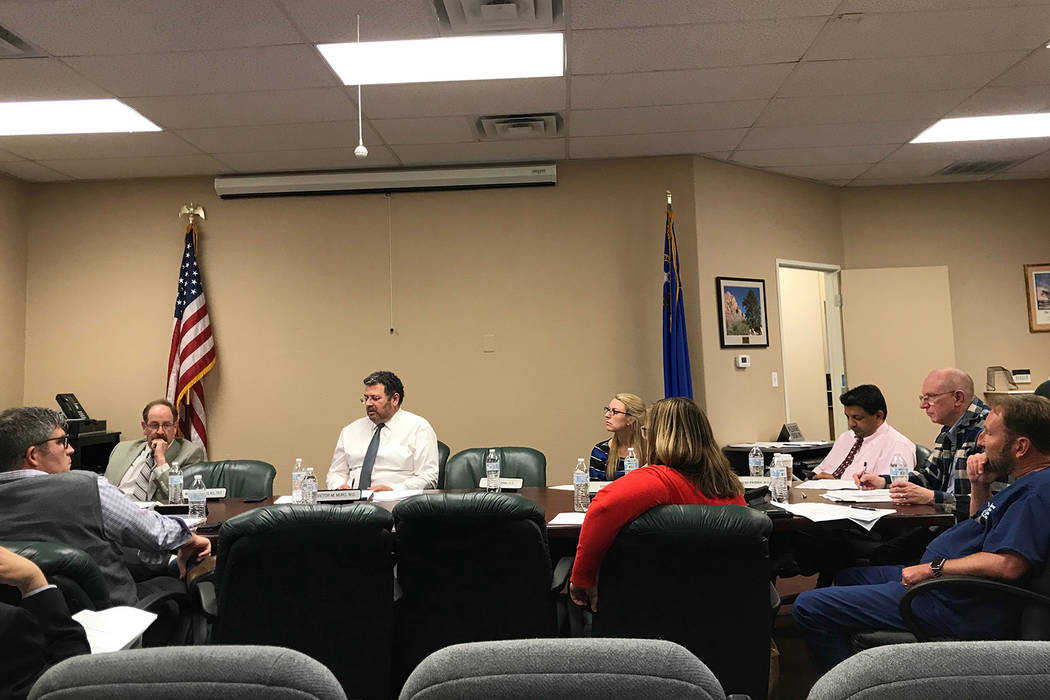Proposal would ease penalties under new Nevada opioid law
Tough proposed disciplinary regulations aimed at curtailing overprescription of opioid painkillers would be eased considerably under a recommendation approved Wednesday by a subcommittee of the Nevada State Board of Medical Examiners.
Instead of the strict rules contained in draft regulations made public after the Prescription Drug Abuse Prevention Act took effect on Jan. 1, the subcommittee will recommend that the consequences for violations of the law will be left to the board’s discretion, based on a prescriber’s “good faith attempts at compliance.”
The original draft created an uproar at a January workshop among doctors who said the law and regulations didn’t adequately define the types of conduct that could lead to penalties or even the loss of their medical licenses.
In response, the medical board created a committee of about 20 doctors, lawyers and health care leaders to look at possible amendments to the regulations, leading to the recommendation approved Wednesday.
The law, passed in the 2017 Legislative session, mandates added paperwork for doctors prescribing opioids. The original regulations said doctors could lose their licences after five violations, even if they were clerical, like forgetting to pull up a patient’s prescription history, and had no direct impact the patient’s safety.
Discipline not required
Both doctors and patients have said in the four months since its implementation, the law has prevented some doctors from prescribing opioids for patients at all, regardless of the legitimacy of their needs.
The proposed regulation adheres to the board’s existing disciplinary process for other laws governing prescribers and gives the medical board the option to abstain from disciplining a doctor if members deem it appropriate.
It also mandates that a doctor who violates the law perform continuing medical education coursework.
“I think what the Legislature tried to do was come up with a response to an obvious issue, but in doing so, they created another set of concerns and worries among the providers, and that was the fear they were going to somehow be held accountable for things beyond the control,” said Dr. Victor Muro, chairman of the subcommittee and a medical board member. “I think what the subcommittee tried to do was address the issues … because the reality of it is that one of the unintended consequences was the continuity of care was disrupted.”
In addition to the disciplinary regulation, the subcommittee plans to recommend to the Board of Pharmacy a regulation to simplify the informed consent and patient medication agreement forms required by the law. Doctors have expressed concerns that they’d have to create additional paperwork to switch a patient’s prescription from one opioid medication to another, but the regulation would create a blanket form for any opioid medication.
If the Board of Medical Examiners approves the recommended regulation at its June meeting, it will be discussed at a public workshop and a hearing before it heads to the state Legislative Commission for approval. Catherine O’Mara, a committee member and executive director of the Nevada State Medical Association, said she expects the regulation to be in place by early fall.
Still, the committee acknowledged at Wednesday’s meeting that while the regulation would clarify how doctors would be disciplined for violating the law, there would need to be changes to the legislation itself in the 2019 session, including clarification as to whether all controlled substance prescribing is regulated, or just prescribing painkillers.
“I think there’s a lot of things that have to be addressed probably in the next session,” Muro said. “I think what we’re trying to do here is try to provide a little guidance in the interim.”
Contact Jessie Bekker at jbekker@reviewjournal.com or 702-380-4563. Follow @jessiebekks on Twitter.
Requirements under the law
The Prescription Drug Abuse Prevention Act limits initial opioid prescriptions to two weeks and requires doctors to perform patient risk assessments before prescribing.
After one month of prescribing, doctors and patients must enter into written prescription agreements.
Three months in, doctors should have a diagnosis for the patient's pain.
A doctor shouldn't prescribe more than a one-year supply of a drug within 365 days, according to the law.





























